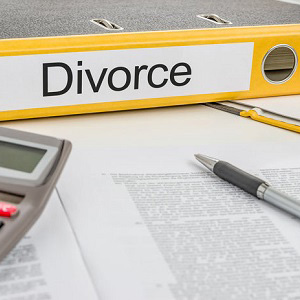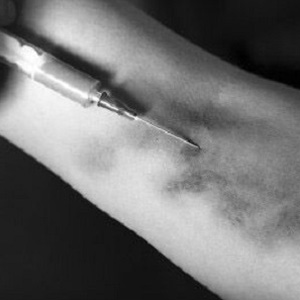
Child support is money paid from one parent to another to help him or her cover the expenses that come with being a child’s primary caregiver. These expenses include groceries, housing, the child’s medical care, and any other needs the child might have, like school supplies and extracurricular activities. When a couple with one or more children divorces, an order for child support is generally part of the couple’s divorce settlement. But when does the need for this support end? Childhood does not last forever, but in many cases, a young man or woman is not self-sufficient when he or she turns 18. Child Support Is Terminated When your Child No Longer Needs It If you are a parent who is currently paying child support, you might be wondering when this obligation will be terminated. The answer is, there is…Read More

When a New Jersey couple divorces, the court divides their assets through a process known as equitable distribution. With equitable distribution, each partner receives a share of the couple’s marital property that meets his or her financial and personal needs following the divorce. This can mean that the partners will not necessarily walk away with an equal amount of assets. For property division through equitable distribution to work, the court must know the extent of the couple’s marital property. This means that all assets, such as cars, real estate, bank accounts, life insurance policies, and stocks must be reported to the court to divide. The court relies on both partners’ honesty for this – if one or both parties attempt to conceal assets, the court can not fairly divide them among the couple. There are a lot of ways an…Read More

Social media is everywhere. Think about how much it has changed your life in the past few years: where do you find out about events in your social circle? Engagements, weddings, new jobs, new babies? How do you share any type of big news of your own? If you are like most Americans, these interactions are facilitated by social media. As you surely know, social media can also be harmful. You might have found information that made you upset, shocked you, or caused you to have a dispute with a loved one via social media. You might also have been told to be very careful about what you post on social media because anything that can be perceived as offensive can harm your career and chances of being hired in the future. When you are going through a divorce, it…Read More

A deposition is an important part of the divorce process. It is used to determine the extent of an individual’s assets so the court can fairly and effectively divide a couple’s property during the divorce process. Going through a deposition is called being deposed. Although it might sound like a scary or uncomfortable process, it is a vital part of your divorce and will only be used to gather information to fairly distribute your shared property with your spouse. If you have any questions about circumstances particular to your situation and how they might play out in a deposition, talk to your divorce attorney. Expect An Interview In a lot of ways, a deposition is like a job interview. You dress professionally and answer questions about your finances and your marriage clearly and concisely. The individual who performs your deposition…Read More

That depends on whether the property was purchased before your marriage or during it. Even then, certain factors can make a singly-held piece of real estate subject to New Jersey’s equitable division laws. If you are unsure about whether a particular piece of property is considered to be singly-held or marital property, discuss it with your divorce attorney. He or she can examine the circumstances surrounding your property and determine whether it is subject to division by the court or not. What Is Singly-Held Property? Singly-held property is the property that belongs to you, and only you. This includes all property you owned before entering your marriage and any property that you receive as a gift or through inheritance during your marriage. Basically, it is your possessions that were not purchased with marital funds. Sometimes, a piece of property that…Read More

Over the past few years, heroin use and abuse in New Jersey has soared. Since 2010, the number of heroin overdose deaths in the state has tripled. In 2014 alone, more than 700 people died of heroin overdoses in New Jersey. Because of its prevalence, the penalties that an individual faces for the possession, sale, or distribution of heroin in New Jersey are different than the penalties for offenses with other Schedule I controlled dangerous substances. Heroin Possession And Distribution Charges Possession of any amount of heroin is illegal in New Jersey. This is a third degree crime, the penalties for which include: Up to five years in prison; A fine of up to $35,000; A six-month driver’s license suspension. An individual charged with the possession of five or more ounces of heroin with the intention to distribute it faces a…Read More

When a couple legally separates, they stop living together but do not formally end their marriage. Couples choose to legally separate for a variety of reasons. When a married couple who has significant assets to divide or children to care for and support financially decides to legally separate, they might opt to draft and sign a separation agreement. This document outlines all the same issues that would be determined in a divorce, such as: Child support; Spousal support; Payment for household expenses and medical bills; Expenses for credit card bills, the couple’s mortgage, and any other debt like a car payment. Although a couple does not have to work with an attorney to create this agreement, it is often advisable that they do so neither party loses the assets he or she is entitled to receive when the couple separates.…Read More
Yes. Any images or discussions you share on social media platforms such as Facebook, Twitter, Instagram, or Tumblr can absolutely be used as evidence of an extramarital affair in divorce court. Although divorces in New Jersey do not have to have grounds (in other words, you do not need to prove that your partner has committed infidelity to be granted a divorce), proof of infidelity can play a role in how the court determines a couple’s alimony agreement. This is not the only way social media data can be used in a divorce case. Pictures of new partners, pictures of an individual engaging in dangerous or illegal behaviors, and how an individual talks about his or her former partner, the court, and his or her child custody arrangement can all be used to determine an appropriate settlement or modification to…Read More

“Simple” and “aggravated” are two terms used to describe the severity of a criminal offense. For example, a simple assault can describe any small fight between two individuals while an aggravated assault refers to an altercation where one or both of the parties suffered bodily harm. The descriptors “simple” and “aggravated” can be used to describe other criminal offenses as well, such as robbery. An assault is a physical attack committed against another human being. If you have been charged with assault in New Jersey, whether you are charged with simple or aggravated assault determines the penalties that you face. The penalties you face can play a role in determining your legal strategy. If you have been charged with either type of assault, it is important that you start working on your defense with an experienced criminal defense attorney right…Read More

In New Jersey as well as the rest of the United States, the legal drinking age is 21 years old. That means that any individual under the age of 21 who is found consuming an alcoholic beverage can face an underage drinking charge. Underage drinking is a disorderly persons offense. Despite it being illegal for individuals under the age of 21 to consume alcohol, many individuals opt to do so anyway. Underage drinking is an especially serious concern on college campuses and in beach towns throughout New Jersey, such as Seaside Heights and Belmar. It is also a criminal offense to provide alcohol to minors. If you are over the age of 21 and you are asked to purchase alcoholic beverages for underage individuals, do not buy it for them. Penalties For An Underage Drinking Charge Any individual charged with…Read More
